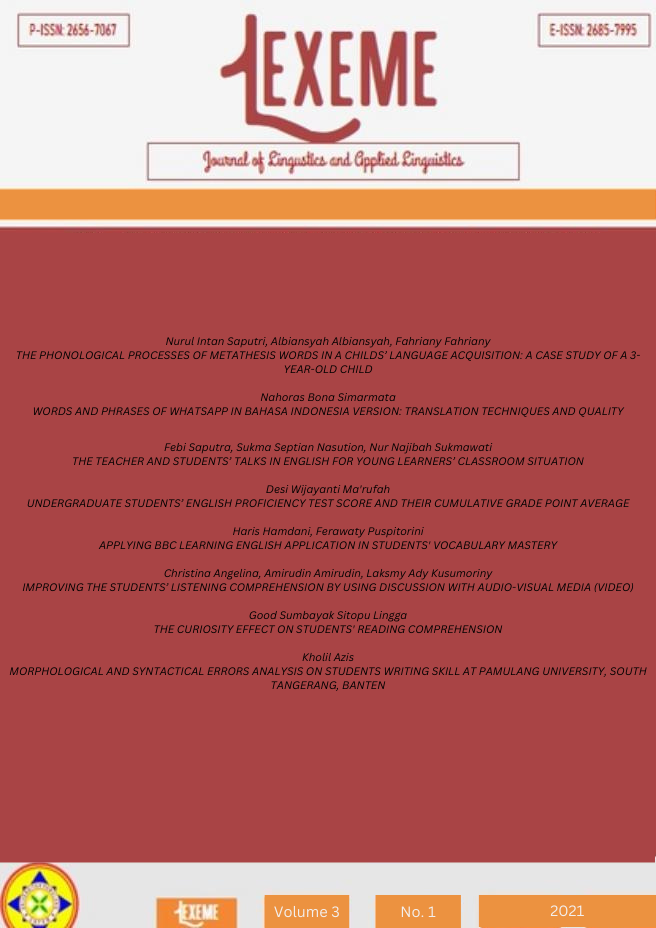UNDERGRADUATE STUDENTS’ ENGLISH PROFICIENCY TEST SCORE AND THEIR CUMULATIVE GRADE POINT AVERAGE
DOI:
https://doi.org/10.32493/ljlal.v3i1.12500Keywords:
achievement test, cumulative grade point average, English proficiency testAbstract
English Proficiency Test (EPT) is popularly used in higher education as a requirement of graduation. However, in fact, some students have not passed the minimum score of the test whereas English language proficiency is important in English Department. Since the class mostly use English to deliver the course, the students’ proficiency need to be concerned. Previous research (David, 2014) suggests that English language proficiency can be a predictor of academic achievement. Thus, this study purposed to find out whether there is any significant positive correlation between English Proficiency Test (EPT) score and Cumulative Grade Point Average (CGPA). Pearson product moment correlation was conducted to compute 35 data of EPT score and CGPA. The results show that there is a significant positive correlation between EPT score and CGPA of English Department students in a university of Purwokerto. Thus, the students should concern to their language proficiency in order to get successful academic achievement.
References
Addow, A. M., Abubakar, A. H., & Abubakar, M. S. (2013). English language proficiency and academic achievement for undergraduate students in Somalia. Educational Research International, 2 (2), 59-66.
David, F. (2014). English language proficiency as a predictor of academic achievement among EFL students in nigeria. Journal of Education and Practice, 5 (9), 38-41.
Harmer, J. (2007a). How to Teach English. China: Pearson Education Limited.
Harmer, J. (2011). The Practice of English Language Teaching. China: Pearson Education Limited.
Harmer, J. (2011). The Practice of English Language Teaching. China: Pearson Education Limited.
Hasan, M. K., & Akhand, M. M. (2014). EFL students' English language proficiency and their academic achievement. ABAC Journal, 32 (2), 64-70.
Hatch, E., & Farhady, H. (1982). Research Design and Statistics For Applied Linguistics. USA: Newbury House Publisher, Inc.
Hughes, A. (1989). Testing for Language Teaching. Great Britain: Cambridge University Press.
McNamara, T. (2008). Language Testing. China: Oxford University Press.
Morris, M., & Maxey, S. (2014). The importance of English language competency in the academic success of international accounting students. Journal of Education for Business, 89, 178-185.







